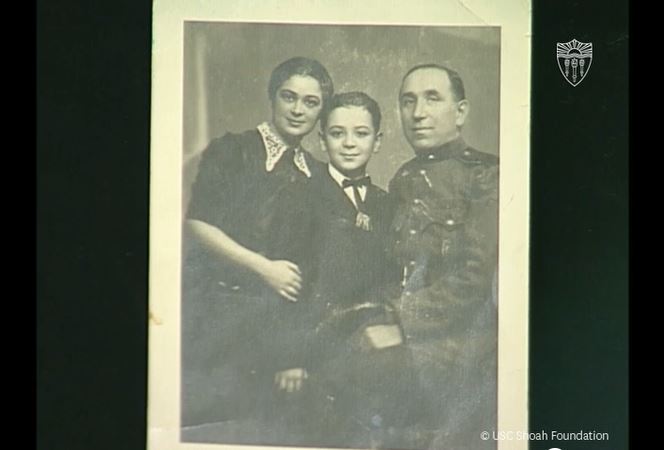Growing Up Jewish During the Holocaust in Hungary
Doheny Memorial Library, Room 240
3550 Trousdale Parkway
Los Angeles, CA 90089
United States

A public lecture by Barnabas Balint (PhD candidate in History, Magdalen College, University of Oxford, UK)
2021-2022 Breslauer, Rutman, and Anderson Research Fellow
(Join us in person for this lecture or attend virtually on Zoom)
Organized by USC Dornsife Center for Advanced Genocide Research
In his video testimony in the USC Shoah Foundation Visual History Archive, Andor Braun recalls his time attending a Catholic school in Miskolc, Hungary, in 1939. “The gym teacher was overtly, explicitly antisemitic,” he remembers. This comment offers a window into the daily life of young Hungarian Jews in pre-war and wartime society. Growing antisemitism in the 1920s and 1930s meant that the generation of Hungarian Jews born in the interwar period faced different challenges to those of their parents, who were often comfortably ingrained in Hungarian life and culture. In his research, Barnabas Balint (PhD candidate in History, Magdalen College, University of Oxford, UK) explores the lives of this interwar generation and how their age intersected with developing ideas about gender, space, ideology, religion, and identity. In this lecture, he examines how the identities of this interwar generation were formed in times of crisis for the Jewish community, how their roles and agency in society changed, and how the institutions they were connected to reacted to persecution. He analyzes the subjective and personal ways young people experienced their age during the Holocaust in Hungary.
Pursuing this topic that is deeply rooted in the subjective experiences of individuals, Balint’s research draws on the survivor testimonies from the USC Shoah Foundation Visual History Archive to understand not only what happened to Jewish youth during the Holocaust but, also, how it was felt, experienced, and internalized. In doing so, Balint problematizes notions of both resistance and normative behavior. He employs digital humanities tools and extensive multi-archival cross-referencing to reveal patterns over time and space and explore the challenges of survivor memory, institutional indexing, and wartime circumstances.
Image Description: The event image comes from Andor Braun's Visual History Archive interview. It includes him and his parents in 1938, one year before Braun's father would be expelled from the regular army and forced into a slave labor battalion
COVID-19 Health and Safety
All attendees accessing USC campus must:
- Complete Trojan Check, USC's daily wellness assessment, prior to entering campus on the day of their visit.
- Show proof of vaccination and photo ID to enter campus. Either a physical CDC-issued vaccine card or a digital copy will be accepted. As an alternative, guests may show a negative COVID-19 test taken within 72 hours of the event.
- While masks are no longer required, masks will continue to be welcome on campus for all those who wish to continue taking extra precautions. According to the County’s guidelines, although masking is no longer required indoors, it remains strongly recommended.
Event Protocol
Please note that no food or drink is allowed in Doheny Memorial Library.
If you are feeling unwell day-of, please join us online! All attendees will be emailed the Zoom link upon registration.